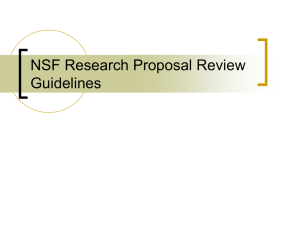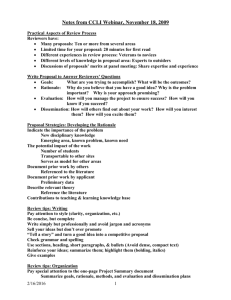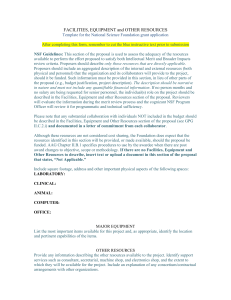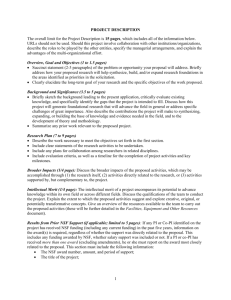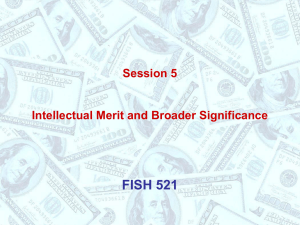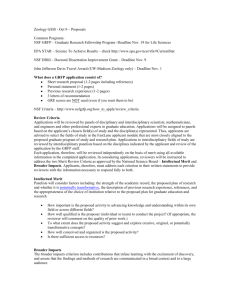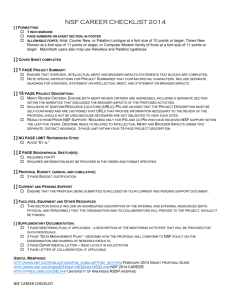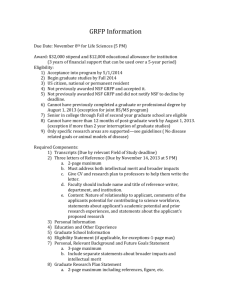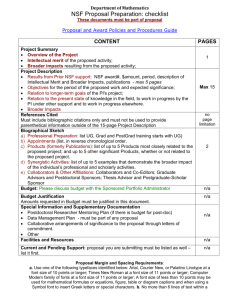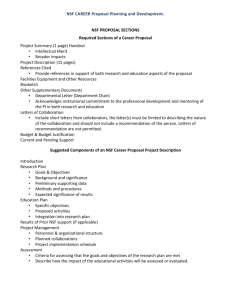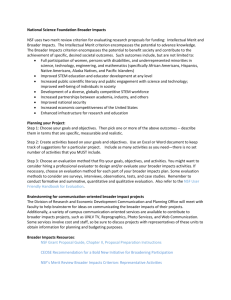Review Template
advertisement
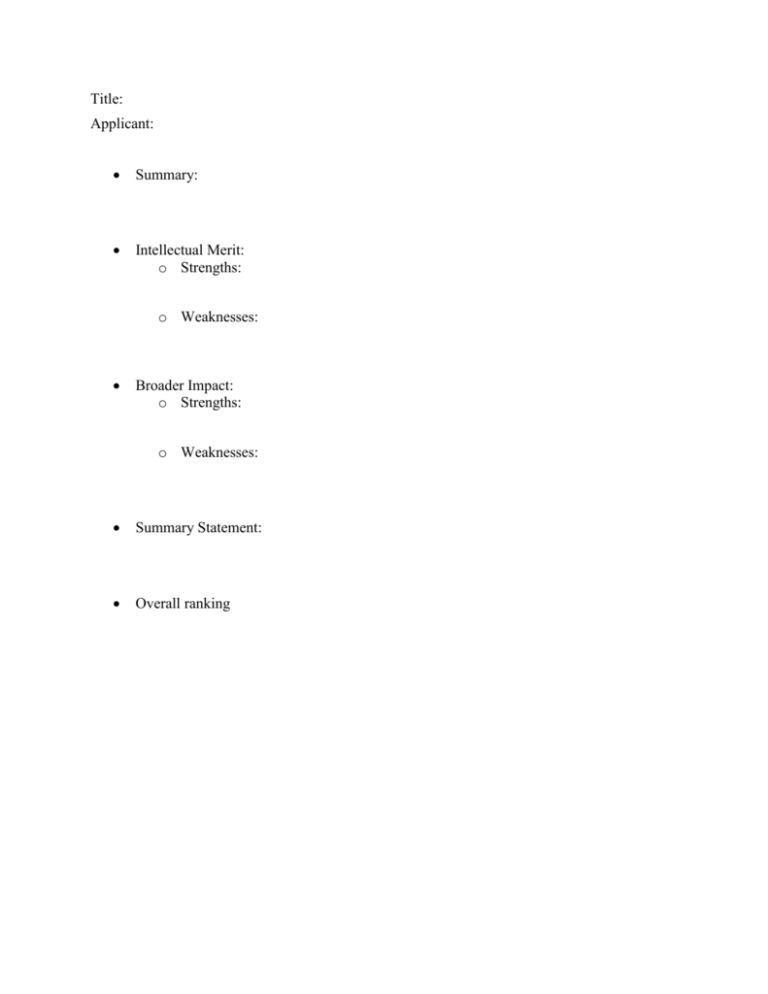
Title: Applicant: Summary: Intellectual Merit: o Strengths: o Weaknesses: Broader Impact: o Strengths: o Weaknesses: Summary Statement: Overall ranking NSF Merit Review Criteria (from the NSF Grant Proposal Guide) When evaluating NSF proposals, reviewers will be asked to consider what the proposers want to do, why they want to do it, how they plan to do it, how they will know if they succeed, and what benefits could accrue if the project is successful. These issues apply both to the technical aspects of the proposal and the way in which the project may make broader contributions. To that end, reviewers will be asked to evaluate all proposals against two criteria: • Intellectual Merit: The Intellectual Merit criterion encompasses the potential to advance knowledge; • Broader Impacts: The Broader Impacts criterion encompasses the potential to benefit society and contribute to the achievement of specific, desired societal outcomes. and The following elements should be considered in the review for both criteria: 1. What is the potential for the proposed activity to: a. Advance knowledge and understanding within its own field or across different fields (Intellectual Merit); and b. Benefit society or advance desired societal outcomes (Broader Impacts)? 2. To what extent do the proposed activities suggest and explore creative, original, or potentially transformative concepts? 3. Is the plan for carrying out the proposed activities well-reasoned, well-organized, and based on a sound rationale? Does the plan incorporate a mechanism to assess success? 4. How well qualified is the individual, team, or organization to conduct the proposed activities? 5. Are there adequate resources available to the PI (either at the home organization or through collaborations) to carry out the proposed activities?
